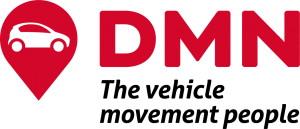2023 to be another challenging year but we remain optimistic
7th December 2022 – Recruitment, price hikes, supply shortages and the rise in EV registrations will continue to challenge the vehicle logistics sector but do provide opportunities for growth, according to Birmingham-based national vehicle movement and inspection firm DMN Logistics.
– Recruitment, price hikes, supply shortages and the rise in EV registrations will continue to challenge the vehicle logistics sector but do provide opportunities for growth, according to Birmingham-based national vehicle movement and inspection firm DMN Logistics.
Delivery driver recruitment problems have been a recurring theme throughout 2022 and are likely to remain a challenge in 2023 as drivers continue to be tempted by higher salaries offered by last mileage delivery firms and local driving operators.
Nick Chadaway, managing director at DMN Logistics commented, “Vehicle logistics requires a level of skill and training with a wage that reflects an industry standard. These roles provide longevity and a career, but many defer to the alternative option for instant cash, which is understandable given the state of the rising costs of living but remains detrimental to our sector. DMN is here to provide a career path and not just an immediate job opportunity.”
Rising costs in electricity, gas, fuel, insurance and business rates will force businesses to review internal operations to remain competitive and dynamic in the marketplace. As costs continue to increase, businesses will have to evaluate pricing strategies and review them periodically in an attempt to sustain and maintain their level of service.
Nick said: “It is unfortunate but inevitable that the rising costs we encounter as an industry will be passed on to the customer. Businesses must look at dynamic pricing strategies and review pricing accordingly to not only remain competitive in the marketplace, but also keep afloat.
“At DMN Logistics, if a customer has an agreed fuel inclusive rate, we vary their charging by the week based on what the market is doing, and this may need to be the case with EVs and the cost of the public charging infrastructure. It is a situation we are constantly monitoring to ensure we can fully support the logistics needs of our Customers and continue to say ‘Yes’ to their needs.”
Supply issues continue to affect overall vehicle delivery volumes, however even with this reduced volume we are seeing capacity issues across the market, driven mainly by the difficult recruitment market and desire for EV movements that are different to the traditional ICE delivery.
An area that had seen previous growth and is a necessary sector of our industry , the aggregating / transport auction platforms are, in my opinion, starting to see large reductions in the level of support from the suppliers in the vehicle movement industry. Not only are the suppliers being affected by driver shortages but also a realisation that the low prices being demanded by these platforms are not a sustainable form of business.
Nick added: “Platforms like these are great when logistics supply outweighs demand but when the opposite is true price-driven platforms must alter their approach to match the market forces.
“Our viewpoint is that price dictates service and although our prices may have to rise in line with rising costs, we offer more to our direct customers. We are specialists in our field and our commitment and reputation within the sector is second-to-none.”
As the 2030 target fast approaches, EV registrations will steadily continue to saturate the marketplace providing an opportunity for logistics companies to offer a different level of service offering. Public charging networks will need to prepare for the impending influx of driven deliveries in order to support the supply chain that is delivering this switchover.
Nick concluded: “Whilst we see many roadblocks ahead, we remain optimistic about 2023 and what we are aiming to achieve. We know that EV registrations will continue to increase and with the arrival of many new players in the EV market there will be growth overall in our sector. With our expansion into transported deliveries, vehicle storage and pool fleet management we are well placed to prosper in the year to come
“


